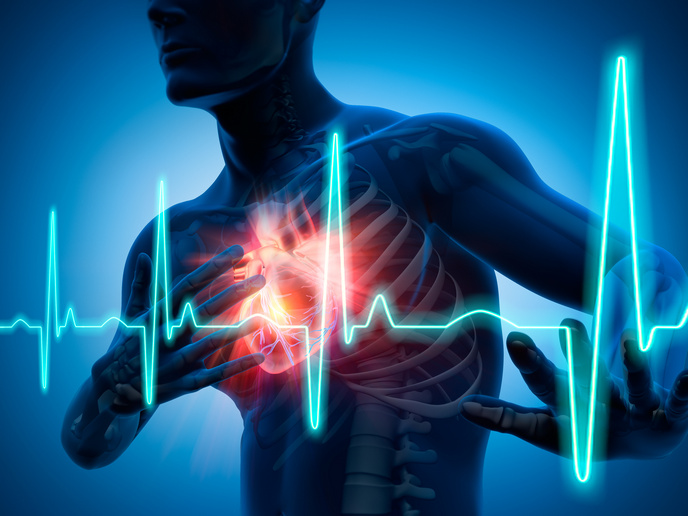Heart Disease Reversal Treatment: Fact or Fiction?

Heart disease has long been considered a progressive condition with no way to reverse its effects. However, emerging research and real-life success stories suggest that strategic lifestyle modifications can not only halt the disease but, in some cases, even reverse its impact. The question remains: Is heart disease reversal treatment a scientific reality, or is it just another wellness trend? Let’s dive deep into the truth behind heart disease reversal and explore the science-backed methods that could potentially change lives.
How Does Heart Disease Develop?
Heart disease primarily occurs due to the buildup of plaque in the arteries, known as atherosclerosis. This process restricts blood flow, leading to serious complications such as heart attacks and strokes. The primary contributors to this condition include poor dietary habits, lack of physical activity, chronic stress, and genetic predisposition. Many believe that once the arteries are clogged, they remain that way permanently. But research suggests that under the right conditions, the body can initiate healing mechanisms that improve cardiovascular health.

The Science Behind Heart Disease Reversal
Contrary to popular belief, heart disease is not a one-way street. Studies indicate that a holistic approach encompassing diet, exercise, and stress management can significantly improve arterial function and reduce plaque buildup. The key lies in reducing inflammation and oxidative stress while promoting arterial flexibility. Scientific evidence, including studies from the Journal of the American Medical Association (JAMA), has shown that intensive lifestyle modifications can lead to measurable improvements in heart health. But what exactly does this reversal strategy entail?
1. Nutritional Strategies for Heart Health
One of the most powerful tools for reversing heart disease is a heart-friendly diet. Scientific studies reveal that plant-based diets, rich in whole grains, legumes, vegetables, and healthy fats, can reduce cholesterol levels and lower the risk of arterial blockage.
| Heart-Healthy Foods | Benefits |
|---|---|
| Leafy greens (spinach, kale) | Reduce inflammation, rich in nitrates |
| Whole grains (oats, quinoa) | Lower cholesterol and stabilize blood sugar |
| Fatty fish (salmon, mackerel) | High in omega-3, supports heart function |
| Nuts and seeds (almonds, flaxseeds) | Provide healthy fats and fiber |
| Berries (blueberries, strawberries) | Antioxidant-rich, reduce oxidative stress |
Eliminating processed foods, sugary beverages, and trans fats is equally crucial. A diet high in fiber and antioxidants can gradually improve arterial function and support long-term heart health.
2. Exercise and Physical Activity
Physical activity plays a vital role in reversing heart disease. Regular exercise enhances circulation, reduces blood pressure, and strengthens the heart muscle. The American Heart Association recommends at least 150 minutes of moderate-intensity exercise per week. Here’s how different activities impact heart health:
| Exercise Type | Heart Health Benefits |
| Brisk walking | Improves circulation, lowers BP |
| Strength training | Enhances cardiovascular efficiency |
| Yoga and meditation | Reduces stress and improves heart rate variability |
| High-intensity interval training (HIIT) | Boosts metabolism and lowers cholesterol |
| Cycling or swimming | Lowers risk of heart disease and improves endurance |
A sedentary lifestyle increases the risk of heart disease, making regular movement an essential part of the reversal process.
3. Stress Management and Sleep
Chronic stress is a silent contributor to heart disease. Elevated cortisol levels trigger inflammation and oxidative damage, worsening cardiovascular health. Effective stress management techniques, including deep breathing, meditation, and mindfulness, can help regulate the body’s response to stress. Additionally, ensuring quality sleep of 7–9 hours per night enhances heart function and supports recovery.
4. Medical and Holistic Interventions
In addition to lifestyle changes, medical interventions may be necessary in advanced cases. Ayurvedic treatments, herbal remedies, and alternative therapies have shown promising results in improving heart function naturally. Many patients combine modern medicine with holistic approaches for a well-rounded treatment plan.

Can You Reverse Heart Disease Completely?
While complete reversal depends on individual cases, significant improvements are possible through disciplined lifestyle modifications. Scientific studies highlight that some patients have shown reduced arterial plaque, improved cholesterol levels, and enhanced cardiovascular performance with consistent efforts.
Final Thoughts
Heart Disease Reversal Treatment is not a myth but a reality backed by research. By embracing heart-healthy dietary choices, engaging in regular physical activity, managing stress effectively, and considering holistic interventions, individuals can reclaim their heart health.
If you or your loved ones are looking for a scientifically backed, holistic approach to heart disease reversal, Madhav Baug offers expert-guided treatments tailored to your needs. Contact them today to take the first step towards a healthier hear
- Industry
- Art
- Causes
- Crafts
- Dance
- Drinks
- Film
- Fitness
- Food
- الألعاب
- Gardening
- Health
- الرئيسية
- Literature
- Music
- Networking
- أخرى
- Party
- Religion
- Shopping
- Sports
- Theater
- Wellness
- News


